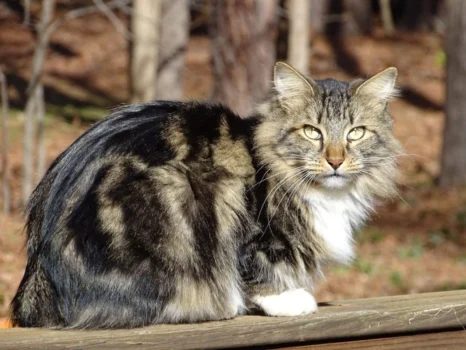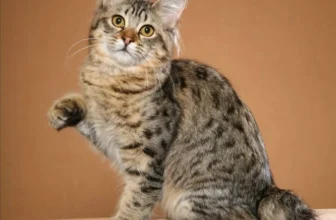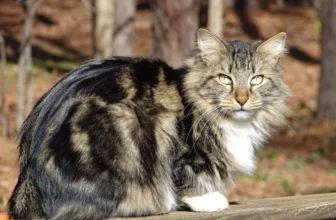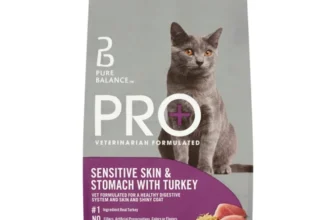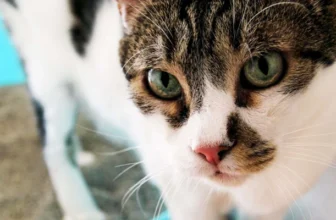As a cat owner, it can be heart-wrenching to see your feline friend struggling with obesity. Unfortunately, American Bobtail cats are particularly prone to this condition. Obesity is a serious health problem that not only affects the overall well-being of your pet but can also lead to other health complications. As such, it is imperative to understand the specific needs and predispositions of this breed to prevent obesity from becoming an issue. In this article, we will provide you with the insight and guidance you need to keep your American Bobtail healthy and happy.
Understanding Obesity in American Bobtail Cats
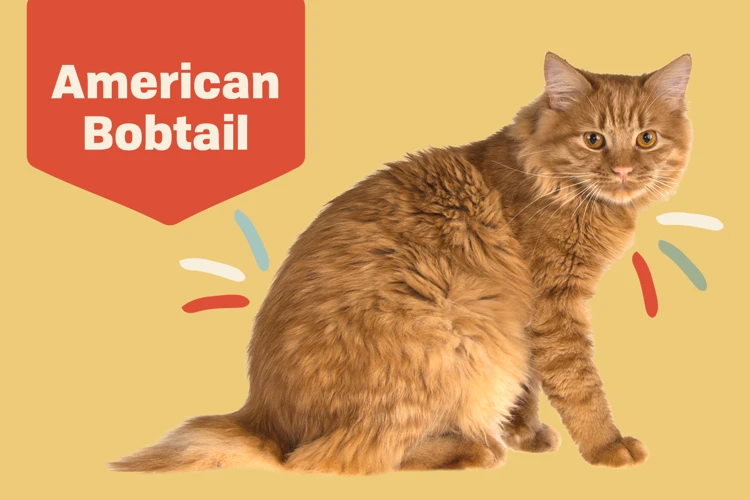
As a loving owner of an American Bobtail cat, you may be concerned about your pet’s health and well-being. Obesity is a common problem among American Bobtails and can lead to a variety of health risks if left unaddressed. Understanding the causes, health risks, and prevention methods of obesity is essential to ensuring that your feline friend leads a healthy and happy life. In the following sections, we’ll delve into the topic of obesity in American Bobtail cats, exploring what causes this condition, the health risks involved, and steps you can take to prevent it. If you would like to learn more about the risks that obesity poses to your American Bobtail and how to reduce it, check out our article on health risks of obesity in American Bobtails.
What is obesity in cats?
Obesity in cats is a term used to describe excessive body fat accumulation which results in an increase in weight beyond what is considered healthy for the cat’s breed, sex, and age. According to the American Bobtail Cat Association, obesity is a common issue among American Bobtail cats.
Causes of Obesity in Cats
Obesity in cats often results from a combination of factors which include overfeeding, lack of exercise, and breed tendency among others. One of the key reasons why American Bobtail cats are prone to obesity is their love to food. They have hearty appetites and can be quite demanding when it comes to feeding time. Their love for food can lead to overeating and eventual obesity.
Health Risks Associated with Obesity in Cats
Obesity in cats can lead to various health complications that can affect their quality of life, and may even be life-threatening if not addressed. Some of these health risks include:
| Health Risk | Description |
|---|---|
| Diabetes | Obesity increases the risk of diabetes in cats by causing insulin resistance and decreasing glucose tolerance. |
| Joint problems | Excess weight puts added pressure on the joints, leading to joint pain, arthritis, and decreased mobility. |
| Heart disease | Obesity increases the risk of heart disease in cats by causing them to have higher blood pressure and bad cholesterol levels. |
| Liver problems | Obese cats are at a higher risk of developing liver problems such as hepatic lipidosis which can be life-threatening. |
| Shortened lifespan | Cats that are obese have a shorter lifespan compared to their healthy counterparts. |
As such, it’s important to prevent obesity by maintaining a healthy weight in your cat.
Why are American Bobtail cats prone to obesity?
American Bobtail cats are a unique breed known for their loyal and loving personalities. Unfortunately, they are also prone to obesity, which can negatively affect their overall health and well-being. Understanding why this breed is more likely to become obese can help owners take preventative measures to keep their pets healthy.
| Reasons for American Bobtail’s obesity | Explanation |
|---|---|
| Lack of exercise | American Bobtail cats may be less active than other breeds due to their laid-back nature. This can lead to weight gain if they are not given enough opportunities to play and exercise. |
| Overfeeding | Bobtails love food and may beg for more even after they have been fed. Some owners may give in to their cat’s demands, leading to overeating and weight gain. |
| Genetics | There may be a genetic component to American Bobtail’s tendency to become overweight. Some research suggests that certain genes may play a role in regulating appetite and metabolism in cats. |
| Age | As cats age, their metabolism naturally slows down, making it easier for them to gain weight. American Bobtails are no exception, and may become overweight as they get older. |
As an owner of an American Bobtail cat, it’s important to be aware of these factors that can contribute to obesity. By taking preventative measures such as providing exercise opportunities and monitoring portions, owners can help their pets maintain a healthy weight and avoid health problems associated with obesity. Regular vet checkups can also help catch weight gain early and address any underlying health issues.
Health problems caused by obesity in American Bobtails
Maintaining a healthy weight in American Bobtail cats is crucial for their overall wellbeing. Obesity can lead to various health issues that can affect their quality of life. Some of the health problems caused by obesity in American Bobtails are:
| Type of Health Problem | Description |
|---|---|
| Diabetes | Obesity in American Bobtail cats increases the risk of developing diabetes, a disease caused by the body’s inability to process glucose properly, leading to high blood sugar levels. |
| Joint Problems | Extra weight puts additional stress on American Bobtail cat’s joints, leading to arthritis, hip dysplasia, and other joint problems, which can limit their mobility and cause pain. |
| Respiratory Problems | Excess fat can constrict the airways and make it difficult for American Bobtail cats to breathe, leading to respiratory problems like asthma and labored breathing. |
| Heart Disease | Obesity in American Bobtail cats can cause heart disease, including high blood pressure and heart failure, which can be life-threatening. |
It is essential to recognize the signs of obesity in American Bobtail cats to prevent these health problems from developing. Regular exercise and a balanced diet can help reduce the risk of obesity and maintain your cat’s ideal weight. You can find some useful exercise tips for overweight Bobtail cats here. However, if you notice that your American Bobtail is already overweight, there are some ways to help them lose weight. You can find some tips on how to reduce obesity in American Bobtail cats here. By following these tips, you can promote your cat’s health and wellbeing, ensuring that they live a long and happy life.
Preventing Obesity in American Bobtail Cats
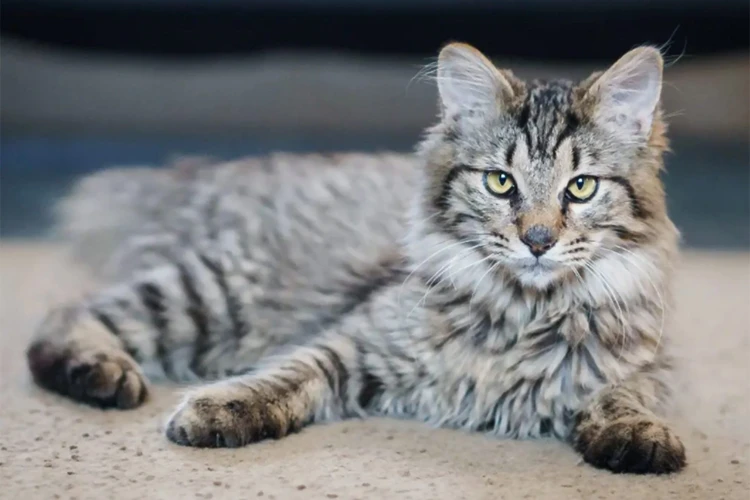
Maintaining a healthy weight is crucial for the well-being of your American Bobtail, as obesity can lead to various health issues. As a responsible pet owner, it’s important to take preventive measures to ensure that your furry friend remains in good shape. With that said, there are several steps you can take to help prevent obesity in American Bobtail cats. By following a few simple guidelines and taking a proactive approach, you can help your feline companion avoid weight gain and live a long, healthy life. Let’s take a closer look at some of the ways you can help your American Bobtail maintain a healthy weight. If you want to gather more information about the consequences of obesity in American Bobtail cats, check out our article on obesity in American Bobtail cats.
Choose a high-quality diet
Choosing a high-quality diet is crucial in preventing obesity in American Bobtail cats. It’s important to select a food that meets your cat’s nutritional needs without overfeeding them. Here are some key considerations to keep in mind when selecting a diet for your American Bobtail:
| Consideration | Explanation |
|---|---|
| Protein Content | American Bobtail cats need a diet high in protein to maintain their muscle mass. Look for food brands that have a high protein content. |
| Calorie Content | Choose a food that is formulated for weight control or indoor cats. These foods tend to have fewer calories than regular cat food. |
| Ingredient Quality | High-quality ingredients lead to better absorption of nutrients and better overall health. Look for foods with named meat sources listed as the first ingredient. |
| Carbohydrates | Limiting carbohydrates can help control weight. Avoid foods with grains, corn, and soy. |
| Moisture Content | Wet food can help your American Bobtail feel fuller for longer without overeating. Consider incorporating wet food into their diet. |
By considering these factors and selecting a high-quality diet for your American Bobtail, you can help prevent obesity in your feline friend. For more information on preventing obesity in American Bobtail cats, please visit our article here.
Feeding your American Bobtail
Feeding your American Bobtail is one of the most important things you can do to prevent obesity. Here are some tips on feeding your American Bobtail:
- Choose a high-quality diet: Look for a cat food that is high in protein and low in carbohydrates. Avoid foods that contain fillers such as corn or wheat.
- Stick to a feeding schedule: Feeding your cat at the same times every day can help regulate their appetite and prevent overeating.
- Avoid free-feeding: Leaving food out all day can lead to overeating and obesity. Instead, measure out the appropriate amount of food for your cat’s size and feed them at specific times throughout the day.
- Use interactive feeders: These are feeders that require your cat to work for their food, such as puzzle feeders or slow feeders. These can help your cat eat slower and prevent overeating.
- Avoid table scraps: Giving your cat table scraps can lead to weight gain and other health issues. Stick to feeding them a high-quality cat food.
By following these tips, you can help keep your American Bobtail at a healthy weight and prevent obesity. Remember to always consult with your veterinarian about your cat’s diet and nutrition plan.
Portion control and meal frequency
Having control over the portions and meal frequency of your American Bobtail is crucial to prevent obesity. Feeding your cat the right amount at regular intervals can ensure that he is getting all the nutrients he needs without overeating. Here are some tips to help with portion control:
1. Use a Measuring Cup: Instead of free-feeding your cat, measure out his food using a measuring cup. This ensures he is getting the correct amount of food at every meal.
2. Follow Feeding Guidelines: Different brands and types of cat food have different feeding guidelines. Be sure to read the label and follow the recommended portion sizes for your American Bobtail’s age, weight, and activity level.
3. Don’t Overfeed: It may be tempting to give your cat “just one more bite,” but overfeeding can lead to obesity. Stick to the recommended portion sizes and avoid giving your cat too many treats.
4. Feed Small, Frequent Meals: Feeding small, frequent meals throughout the day instead of one or two large meals can help prevent overeating and keep your cat’s metabolism in check. Aim to feed three to four small meals a day.
Here is an example of a meal schedule for an adult American Bobtail cat:
| Meal | Time | Portion Size |
|---|---|---|
| Breakfast | 7:00 am | 1/4 cup dry food |
| Mid-morning snack | 10:00 am | 1/2 can wet food |
| Lunch | 1:00 pm | 1/4 cup dry food |
| Afternoon snack/playtime | 4:00 pm | A few pieces of kibble or a cat toy |
| Dinner | 7:00 pm | 1/2 can wet food |
| Before bedtime snack | 10:00 pm | A few treats or a small amount of wet food |
Remember, every cat is different and may require more or less food depending on their size and activity level. Be sure to talk to your veterinarian about the best portion sizes and meal frequency for your individual American Bobtail.
Monitor your cat’s weight and body condition
As a responsible pet owner, it is essential to monitor your American Bobtail cat’s weight and body condition regularly. Obesity is a serious issue, so early detection and prevention are key.
You can start by establishing your American Bobtail cat’s baseline weight, either at a veterinarian’s office or with a reliable scale at home. Record their weight in a table or chart, along with the date of measurement. This way, you can track any changes in their weight over time.
Table: Weight Monitoring Chart
| Date of Measurement | Weight (lbs) |
|---|---|
| January 1, 2021 | 12.2 |
| February 1, 2021 | 12.4 |
| March 1, 2021 | 12.6 |
In addition to weight, keep an eye on your American Bobtail cat’s body condition. You can do this by regularly feeling their ribs, spine, and hips. A healthy cat should have some padding over these areas, but you should still be able to feel them without pressing too hard.
If you’re unsure about how to assess your cat’s body condition, speak to your veterinarian. They can show you how to do it correctly or conduct regular check-ups to ensure that your American Bobtail cat is maintaining a healthy weight.
By monitoring your American Bobtail cat’s weight and body condition, you can catch any weight gain early and take action to prevent obesity. And, in the case that your cat is already overweight, these records will also help you track their progress and determine if they are on the right track towards a healthier weight.
Encourage exercise and playtime
One of the most effective ways to prevent obesity in American Bobtail cats is to encourage exercise and playtime. Regular exercise can help burn calories, improve muscle mass, and keep cats mentally stimulated. Here are some ways to encourage exercise and playtime for your American Bobtail:
- Create a stimulating environment: Provide toys, scratching posts, and interactive games to keep your cat entertained and active. You can rotate toys every few days to prevent boredom.
- Build a play area: Create a designated play area for your cat, either indoors or outdoors, and make sure the area is safe and secure.
- Play with your cat: Schedule daily play sessions with your American Bobtail, using toys such as laser pointers, feather wands, and interactive puzzles. Make sure to vary the toys and games to keep your cat engaged.
- Take your cat for walks: American Bobtail cats can be trained to walk on a leash and harness. This is a great way to get some fresh air and exercise together.
- Provide climbing opportunities: Cats love to climb, so providing a cat tower or shelving system can give your American Bobtail a chance to stretch and jump.
Remember, regular exercise and playtime are essential to keeping your American Bobtail healthy and preventing obesity.
Provide mental stimulation
As important as physical exercise is for keeping your American Bobtail cat at a healthy weight, mental stimulation is also crucial. Keeping your cat mentally engaged helps prevent boredom and overeating, and can lead to weight loss.
Here are some ways to provide mental stimulation for your American Bobtail:
- Interactive toys: Invest in toys that require your cat to use problem-solving skills or physical activity, such as puzzle feeders, chasing toys, or interactive laser pointers.
- Training: Teaching your cat simple tricks or commands can help keep their mind active and engaged.
- Window perches: Giving your cat a comfortable spot to watch birds and other outdoor activity can provide mental stimulation and entertainment.
- Cat trees and scratching posts: These provide not only a place for your cat to scratch but also to climb and play, which can keep them mentally stimulated and active.
- Rotate toys: To prevent boredom, rotate your cat’s toys on a regular basis, providing variety and a sense of newness.
By providing mental stimulation along with physical exercise and a healthy diet, you can help prevent obesity in your American Bobtail cat and ensure that they live a happy, healthy life.
Signs of Obesity in American Bobtail Cats
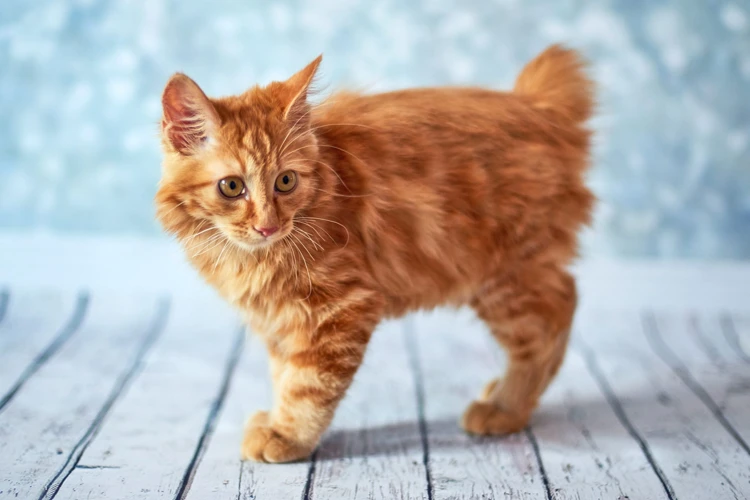
It is important to keep an eye out for signs of obesity in your American Bobtail cat so that you can take action before it becomes a serious health problem. One of the most noticeable signs of obesity is the presence of a large amount of fat on your cat’s body. This can be seen especially on the belly area, which may appear rounded or sagging.
Another sign of obesity in American Bobtails is difficulty in walking or moving around. This is because the extra weight puts extra strain on the joints, making it harder for the cat to move freely. They may also become more lethargic, lose interest in playing, and spend more time sleeping.
You may also notice that your cat’s appetite has increased, and they constantly beg for food or treats. Additionally, they may have trouble grooming themselves, leading to matted fur, which can further contribute to obesity.
It is important to keep in mind that being overweight is not the same as being obese. Overweight cats have a slightly higher body weight than is ideal, but they are not necessarily in danger of health problems. However, obesity is a serious condition that can lead to diabetes, liver disease, heart disease, and other health problems.
If you notice any of these signs in your American Bobtail cat, it is important to consult with your veterinarian to create a plan to help your cat lose weight and maintain a healthy body condition.
Tips for Helping Your American Bobtail Lose Weight
Helping your American Bobtail lose weight can be a challenging task, but it is crucial to their overall health and well-being. Here are some tips that can help with their weight loss journey:
1. Gradual weight loss: Rapid weight loss can be harmful to your cat’s health, and may even cause more harm than good. It’s essential to aim for gradual weight loss by making small changes to their diet and exercise routine over a period of time. This can help to ensure that they stay healthy while losing weight.
2. A balanced diet: Ensure that your American Bobtail is getting a balanced diet with all the essential nutrients. It is crucial to avoid giving your cat high-calorie treats and snacks, which can add extra pounds. Instead, try offering healthy options such as lean meats, vegetables, and fruits. Also, avoid free-feeding your cat, and stick to regular meal schedules.
3. Increase exercise: Encourage your American Bobtail to exercise more by playing with them daily. Provide them with toys that promote physical activity such as balls, laser pointers, and feather wands. It is also essential to make sure that they have enough space to move around and play.
4. Avoid human food: It’s vital to avoid sharing your food with your American Bobtail, as human food is typically high in calories and often doesn’t contain the necessary nutrients for your cat. Sharing your food could lead to overfeeding, and your cat may not get the essential nutrients they need.
5. Consistent routine: It’s essential to maintain a consistent routine for feeding and playing with your American Bobtail. Consistency can foster good nutrition and exercise habits, which can help them maintain a healthy weight. Additionally, it can also help establish a strong bond between you and your cat.
Helping your American Bobtail lose weight is crucial to their overall health and happiness. With the right approach, it is a manageable task. Gradual weight loss, a balanced diet, increased exercise, avoiding human food, and maintaining a consistent routine are all essential for achieving and maintaining a healthy weight for your American Bobtail.
Conclusion
After reading through this article, we hope you have gained a better understanding of how to prevent obesity in American Bobtail cats. As a cat owner, it is important to pay close attention to your cat’s diet and exercise routine to ensure they maintain a healthy weight.
Feeding your cat a high-quality diet, controlling portion sizes, and encouraging exercise and playtime are all important steps in preventing obesity. It is also crucial to monitor your cat’s weight and body condition regularly to catch any changes early on.
If you do notice signs of obesity in your American Bobtail cat, don’t worry. With the right approach and guidance from your veterinarian, you can help your cat lose weight in a healthy and sustainable way. Remember to be patient and consistent, as weight loss can take time.
By following the tips outlined in this article, you can help your furry friend live a happy and healthy life. Always prioritize your cat’s well-being and consult with a veterinarian if you have any concerns or questions. With your love and care, your American Bobtail cat can flourish and avoid the negative consequences of obesity.
Frequently Asked Questions
Can American Bobtails only become obese if they overeat?
No, genetics can also play a role in a cat’s weight and their predisposition to obesity.
What should I look for in a high-quality diet for my American Bobtail?
Look for a diet that is high in protein and low in carbohydrates. Avoid foods with added sugars and fillers.
How many times a day should I feed my American Bobtail?
It’s recommended to feed your American Bobtail 2-3 meals per day, with controlled portion sizes.
What is portion control and how can I practice it?
Portion control involves measuring out the appropriate amount of food for your cat’s weight, age, and activity level. You can use measuring cups or a kitchen scale to help with this.
How can I encourage more exercise and playtime for my American Bobtail?
Provide plenty of toys, scratching posts, and perches for your cat. Engage in interactive playtime with them regularly and consider investing in a cat wheel for them to run on.
What are some healthy treats I can give my American Bobtail?
Cooked, lean meats like chicken or turkey are good options. You can also try freeze-dried meat treats or small amounts of canned pumpkin.
What are some potential health issues associated with obesity in American Bobtails?
Obesity can lead to diabetes, heart disease, joint problems, and a shortened lifespan.
Should I consult with my veterinarian about my American Bobtail’s weight?
Yes, your veterinarian can help assess your cat’s weight and body condition and provide recommendations for a healthy diet and exercise plan.
What is the ideal body condition score for an American Bobtail?
The ideal body condition score is between 4-5 out of 9 on the scale. Your veterinarian can help determine your cat’s score.
How long should it take for my American Bobtail to lose weight?
Weight loss should be gradual and slow, usually around 1-2% of their body weight per week. The length of time it takes to reach a healthy weight will vary depending on your cat’s starting weight and overall health.

